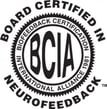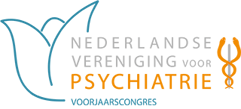Accreditation
Straight to:
The neurocare academy offers remote and in-person training opportunities to healthcare professionals and researchers seeking instruction in neuromodulation techniques, including but not limited to repetitive Transcranial Magnetic Stimulation (rTMS), transcranial Direct Current Stimulation (tDCS) and EEG Biofeedback techniques (Neurofeedback).
Our TMS and tDCS courses follow recommendations provided by the IFCN (International Federation of Clinical Neurophysiology) committee for training in the practice of non-invasive brain stimulation (Fried et al. 2020).

All course or workshop participants will receive a certificate acknowledging their time spent towards Continuing Professional Development (CPD).
Australia
The neurocare academy course & workshop: 'rTMS in Depression, OCD & New Developments' is endorsed by the Royal Australian & New Zealand College of Psychiatrists.
For professionals in Australia, this is completed in two parts: (1) successful completion of all online modules of the online course available on our Learning Management System and (2) followed-up by a practical hands-on workshop. At the end of the practical hands-on workshop participants are evaluated on their theoretical and practical knowledge in order to fulfil the accreditation criteria.
neurocare academy offers the Neurofeedback in ADHD & Insomnia course to registered Psychologists and Psychiatrists in Australia, following the BCIA-A 36-hour didactic blueprint.

The Netherlands
neurocare academy (formerly Brainclinics Education) is registered in “Centraal Register Kort Beroeps Onderwijs (CRKBO)” which is a register for professional education.
- NVvP: Nederlandse Vereniging voor Psychiatrie, nascholing

- FGZPt: Gezondheidszorgpsycholoog
- Neurofeedbackpsycholoog NIP
Also note, as neurocare academy is a registered educational centre, we do not charge 19% tax on the courses and workshops conducted in the Netherlands. This is according to European Tax-guidelines.
rTMS in Depression, OCD & New Developments
The online and practical course combined follows the blueprint by Stichting Hersenstimulatie and requires a further 10 hours supervision to receive accreditation as ‘rTMS Professional’, or a further 20 hours supervision to receive accreditation as ‘rTMS Technician’.
Germany
neurocare academy regularly runs workshops in Munich. The workshops are approved by the following organisations:
- Bayerische Landesärztekammer (BLAEK) – after application
- Landesärtzekammer Thüringen (TLAEK) – after application
- ASCA: Schweizerische Stiftung für Komplementärmedizin (Switzerland)
Biofeedback Certification International Alliance

In the field of Neurofeedback, it is recommended to work towards a quality standard to ensure the highest quality care and professionalism are met. The Biofeedback Certification International Alliance (BCIA) provides this quality standard. Formerly the Biofeedback Institute of America, BCIA has a growing number of certified therapists from the Netherlands and elsewhere. Currently, there are over 40 psychologists from the Netherlands who have been certified. BCIA is a professional association which has represented the interests and monitored the quality of the Neurofeedback therapists for over 30 years.
BCIA strives to maintain the highest quality in the field of evidence-based Neurofeedback. BCIA provides a blueprint with the guidelines for becoming BCIA certified. All Neurofeedback therapists wishing to be BCIA certified must meet those guidelines and continue to fulfil them. You can find the blueprint here.
Your training must follow the didactic education course covering the 36-hour BCIA Blueprint of Knowledge statements from a regionally accredited academic institution or a BCIA-accredited training program.
Seeking BCIA accreditation through neurocare academy
‘Neurofeedback in ADHD & Insomnia’ facilitated by neuroCademy, is a course that is an accredited learning pathway towards BCIA certification following the 36-hour BCIA Blueprint of Knowledge.
The Neurofeedback in ADHD & Insomnia course is also available as pre-recorded learning modules which can be accessed via the neurocare LMS system. Users are tested on their knowledge towards course completion (see above). However, in order to endorse the participant towards BCIA, instructors will need to observe the participant complete a hands-on practical learning module. These are usually one-day courses held in our training centres.
neurocare academy trainers can also provide ongoing BCIA supervision hours after an initial practical workshop.
To summarise, professionals looking for BCIA accreditation must complete our online course, followed by practical hands-on training followed by ongoing supervision to cover certain additional requirements by BCIA. A final examination by BCIA may be necessary. See the website for more details: BCIA.org
Enquire today






